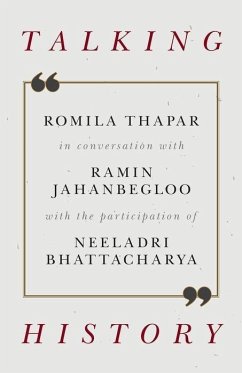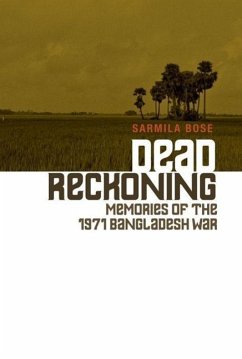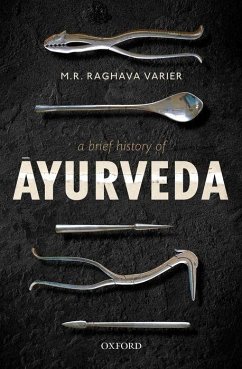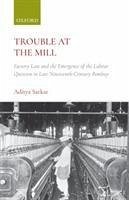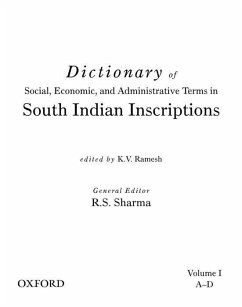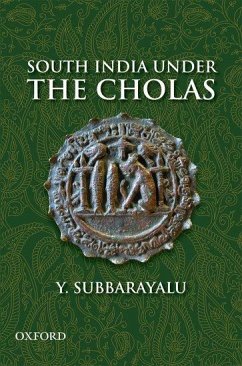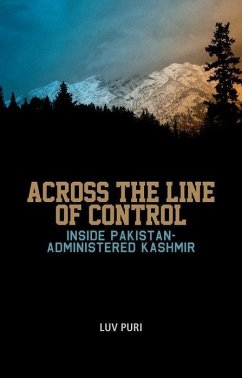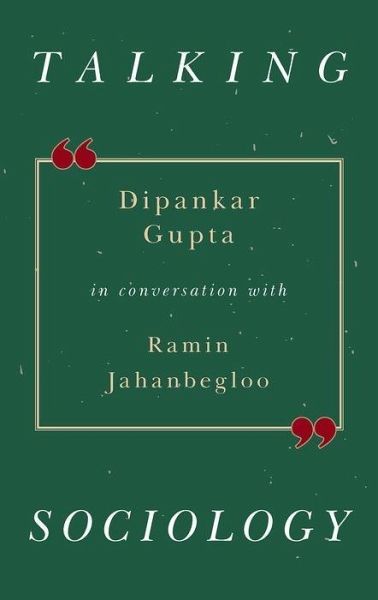
Dipankar Gupta
Gebundenes Buch
Talking Sociology
Deepankar Gupta in Conversation with Ramin Jahanbegloo
Versandkostenfrei!
Versandfertig in über 4 Wochen

PAYBACK Punkte
20 °P sammeln!




The ninth title in the OUP series of Ramin Jahanbegloo's conversations with prominent intellectuals who have made significant contribution in shaping the modern Indian thought. This volume covers the life and works of the influential Indian sociologist and public intellectual, Dipankar Gupta.
RAMIN JAHANBEGLOO is professor and vice dean and executive director, Mahatma Gandhi Centre for Peace Studies, O.P. Jindal Global University, Sonipat, Haryana. He did his PhD in philosophy from the Sorbonne University, France. He is the author of 'Talking India: Ashis Nandy in Conversation with Ramin Jahanbegloo' (OUP 2006), 'India Revisited: Conversations on Contemporary India' (OUP 2007), 'India Analysed: Sudhir Kakar in Conversation with Ramin Jahanbegloo' (OUP 2015), 'Talking Architecture: Raj Rewal in Conversation with Ramin Jahanbegloo' (OUP 2009), 'Talking Politics: Bhikhu Parekh in Conversation with Ramin Jahanbegloo' (OUP 2011), 'Talking Environment: Vandana Shiva in Conversation with Ramin Jahanbegloo' (OUP 2013), 'Talking Philosophy: Richard Sorabji in Conversation with Ramin Jahanbegloo' (OUP 2015) and 'Talking History: Romila Thapar in Conversation with Ramin Jahanbegloo' (OUP 2017). In October 2009 Jahanbegloo was awarded the Peace Prize by the United Nations Association in Spain for his extensive academic works in promoting dialogue between cultures and his advocacy for non-violence. DIPANKAR GUPTA has taught for nearly three decades in the Jawaharlal Nehru University. He was also Professor in the Delhi School of Economics between 1992-1994. He has worked on Social Stratification, Ethnicity, Modernity and Peasant Mobilization. In recent years, he has written extensively on social policy and has been a Member in a number of Boards such as the Reserve Bank of India, National Security Advisory Board, National Broadcasting Standards Association. He also led the Division on Business Ethics in KPMG, India between 1998-2006. He has held visiting assignments in several universities in India, Europe, USA and UK. Besides this book he has authored and edited 19 others. He was awarded 'Chevalier de L'Ordre des Arts et des Lettres' by the French Government in 2010.
Produktdetails
- Verlag: Hurst & Co.
- Erscheinungstermin: 29. Januar 2019
- Englisch
- Abmessung: 223mm x 149mm x 17mm
- Gewicht: 354g
- ISBN-13: 9780199489374
- ISBN-10: 0199489378
- Artikelnr.: 54830485
Herstellerkennzeichnung
Libri GmbH
Europaallee 1
36244 Bad Hersfeld
gpsr@libri.de
Für dieses Produkt wurde noch keine Bewertung abgegeben. Wir würden uns sehr freuen, wenn du die erste Bewertung schreibst!
Eine Bewertung schreiben
Eine Bewertung schreiben
Andere Kunden interessierten sich für


